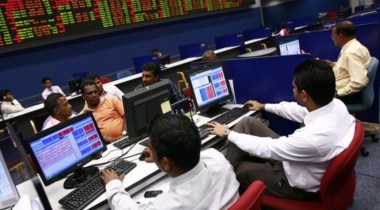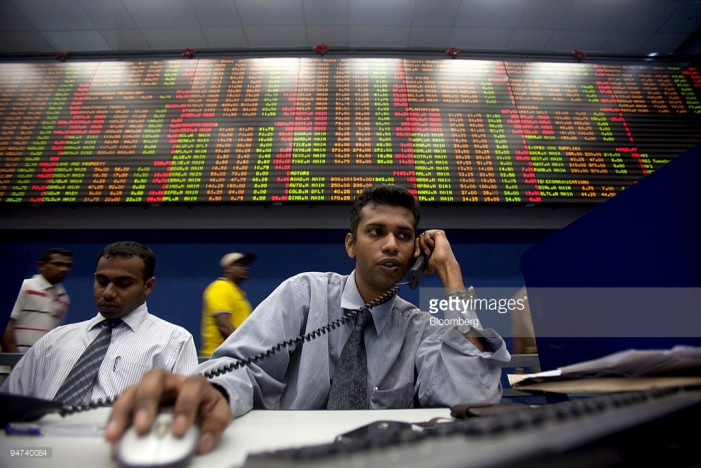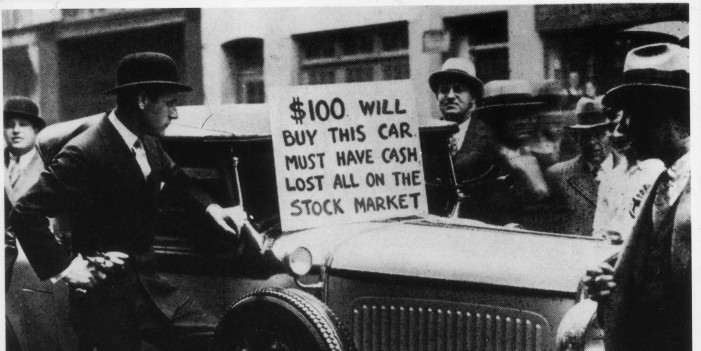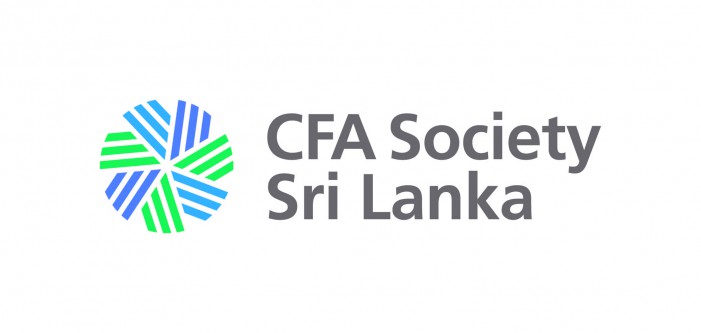
Investment has traditionally been seen in Sri Lanka as a pastime for the retired. The able-bodied consign their youth to the routine of monthly salaries and weekend parties. Their future they entrust to the feebly maturing creature called the provident fund for their retirement. Ravi Abeysuriya, Chartered Financial Analyst, Group Director of Candor Group of Companies, believes in the opposite of the formula. Merely the lump sum that a person receives from the provident fund, or money saved in bank accounts when one retires, would not be sufficient to cope with inflation and a mounting cost of living. “When you are young you have more capacity to build up a nest egg,” he says, “so by the time you retire, you have a pool of money to live on for another 20 years.”
Abeysuriya says that Sri Lankans are unenthusiastic about investing because they are not aware of the range of options available to them. Many people settle for investing in real assets such as land, houses, gold etc.—as opposed to financial assets such as stocks and fixed income instruments such as bonds and debentures. The opportunities for investment are wide and varied; following is a simple overview for the uninitiated.
Fixed Deposits
For the risk-averse, middle-class Sri Lankan, a fixed deposit (FD) is an unimaginative but popular investment solution. The fact that the principal invested in the FD does not fluctuate, as well as the fact that both principal and pre-determined interest is received at the maturity of the FD, has contributed the perception of FDs being a safe investment option.

Fixed deposits have proven a very popular investment option in Sri Lanka as they are considered the safest. Image courtesy: http://www.greenlivingbees.com
Once money is entrusted to an FD, it will earn interest until the maturation of the deposit without much effort from the investor. To benefit from the terms of the fixed deposit, one cannot withdraw one’s investment until the deposit matures. If one wishes to withdraw money before that, some banks may pay a lower interest rate than the agreed rate—some may not even pay any interest if the deposit is withdrawn within the first 3 months.
Simply putting your money away and effortlessly watching it grow appeals to the average citizen who has little knowledge of alternative investment opportunities. Investors are further incentivised by the ability to obtain loans against the deposit. Speaking of the advantages of fixed deposits, Abeysuriya explained that the long-term nature of the fixed deposit means that an investor could be locked in with a favourable interest rate even while the market interest rates fluctuate.
However, the long-term nature of fixed deposits also brings its own negatives. The chief disadvantage is the loss of purchasing power owing to inflation. This is especially worrisome in a developing nation like Sri Lanka that has periods of high inflation. When the inflation rate is over the actual deposit rate, the investor will lose purchasing power. “Although there’s no fluctuation of the value of the principal like in the stock market,” said Abeysuriya, “you can lose due to loss of purchasing power or lose everything—the principal as well as the interest—if the institution you deposited the money fails”.
Government Securities
Among fixed income instruments, government securities such as treasury bills and bonds entail the least risk, and bring the lowest rewards. Someone purchasing a government bond will be periodically paid a sum of money as interest until the maturation of the bond. Technically, government securities issued in the national currency are risk-free, as the government can simply print its own currency to pay investors. However, for fixed income instruments issued in foreign currency, a country can choose to be bankrupt, creating a situation called sovereign default.
Debentures
A debenture is a fixed income instrument that banks and corporates use to borrow money at a fixed rate of interest. Money raised in this manner does not form a company’s share capital, but adds up to its debt capital. However, debentures differ from a traditional bond as they are not secured by any assets which the creditor can use to redeem the bond. Thus, a debenture has a greater degree of risk, and an investor relies entirely on the creditworthiness of the particular institution issuing the debentures.
Abeysuriya said that listed debentures were a popular investment choice among the financially literate because, until recently, their interest income was totally tax free. Traditionally, an investor would save money in the bank and the bank, in turn, would mobilise those funds as loans to corporates. As intermediaries, banks retain a disintermediation margin. “This percentage can be high,” explained Abeysuriya. “With debentures, institutions go directly to investors.” However, listed debentures would not enjoy its tax-free status under the new Inland Revenue Act which is expected to be passed by the parliament in 2017.
Debentures are of two kinds: convertible debentures and non-convertible debentures. The former kind comes with a measure of security as they can be converted into equity shares in the event the company is unable to pay the investors. The latter kind is regular debentures that usually incentivise investors by offering a higher interest rate.
Most fixed income instruments are rated by credit rating agencies. Rating agencies measure the capacity of a fixed income instrument or FD to repay the principal and interest. The most dependable investment choices, or those having the lowest default risk, will be rated AAA, the second best as AA, and then A. The classification follows with BBB, BB and B and C grade. D grade means that the institution concerned is in default. “A fixed income instrument gets rated down as the cushion between earnings before interest and tax (EBIT) and interest expenses or repayment capacity comes down,” said Abeysuriya, “and that’s a signal for any investor to exit that investment.”
Share Market

The Colombo Stock Exchange. Image credit: Getty Images/Bloomberg
Companies raise equity by selling shares; one receives an ownership in an institution proportionate to his/her shareholding. In return, shareholders are paid dividends. A company can list their shares in a stock exchange by issuing stocks at an event called Initial Public Offering. These shares later get traded in the secondary market. The supply and demand of shares determine the share price on the secondary market. The primary advantage of investing through the secondary market is that the investors get the opportunity, to buy and sell shares to achieve higher returns in the long run than from FDs. The prices of shares in the secondary market fluctuate based on how investors perceive future earnings of the company. Furthermore, socio-economic and political factors both local and global also affect share prices. Smart investors can take advantage by buying undervalued shares due to market fluctuations and sell the shares at a profit when they go up in value. The second advantage lies in an investor’s ability to buy shares that pay good dividends and create a stream of income irrespective of market price movements. The third advantage is that all shares listed on the CSE are fairly liquid from an individual investor’s perspective, and therefore can be sold and converted to cash if required in an emergency.
Investing in shares involves taking risks as share prices can go up as well as down and therefore is subject to uncertainty of returns. Hence, an investor should be prepared to accept volatility or change in the value of the principal invested in securities and dividend payments. The equity investor is usually compensated for this uncertainty or risk by better returns than any other asset class, where one will see one’s investment value grow over the long term, provided the investor follows prudent investment principles and invest smartly.
People invest in shares of companies and undertake entrepreneurial activity as there is tremendous long-term value-creation in properly governed companies. The stock market offers the means to participate as an owner in the growth of the companies that make up Sri Lanka’s economy.
“There is a serious lack of investor confidence and trust in the Sri Lankan share Market,” said Abeysuriya. When investors do not trust the share market, they are unlikely to save and invest for their future and achieve their long-term financial goals. Sri Lanka, being one of the fastest ageing countries in the world, Abeysuriya stated that “there will be a massive social impact to Sri Lanka in the not too distant future unless they start investing. People will have lower quality of life and may have to work longer and will have intergenerational stress”.
Unit Trusts Or Mutual Funds
All the instruments discussed above are modes of individual investing. A unit trust, on the other hand, is a means of investing collectively in stocks and fixed income instruments. An individual investor with even Rs. 1,000 can buy units in a unit trust; this pool of capital is then professionally managed to generate a return as per the trust deed. The unit trusts charge a management fee for this.
As opposed to an individual investing directly with a relatively limited capital, a unit trust will always diversify their investments, hence further minimising risk of failure. Another advantage of unit trusts is that they always have a trustee who will look after the interest of the investor.
There are three main kinds of unit trusts:
Open-end funds
The unit trust management company is obliged to buy back the shares of their investors.
Closed-end funds
These funds only issue shares to the public once. If the investors want to sell out, they have to trade their shares in the secondary stock market.
Trust Deed
Unit Trust fund is set up by a trust deed, of which the investor would be the beneficiary. The investment is held in trust by the fund on behalf of the investor—also called the unit holder—for the time period specified in the deed. This means that the unit trusts are temporary. These funds pay the investor back directly rather than reinvest the returns of investments in the fund.
The Dos And Don’ts Of Investing
Diversify your investments

The Wall Street crash of 1929, also called Black Thursday, precipitated the Great Depression, arguably the greatest financial crisis of the 20th Century. Image courtesy: Wikimedia
“It is important not to put all your eggs in one basket,” said Abeysuriya. He noted that there are many horror stories of people who have been ruined in the investment field, because they have not diversified their investments. The collapse of the Golden Key Credit Card Company was a chastening disaster. In a scandal that left the owner of Golden Key Credit accused of misappropriation, thousands of Sri Lankans lost millions of rupees. “One should not only diversify among different companies but also diversify among different asset classes, because one class as a whole can collapse,” explained Abeysuriya, “we have had situations in Sri Lanka where a lot of finance companies went bankrupt at the same time due to a systemic issue”.
Have an investment portfolio
Wealth management is about matching an investor to a portfolio. It is not simply stock picking or investing cleverly in real estate. A concentrated portfolio faces greater risk of loss than a well-diversified one. Wealth management begins by understanding yourself, understanding markets and finding a balance between capital preservation and future growth in your investment portfolio. Managing wealth is not about getting rich quick, or speculating on the stock market. Wealth management is a well-considered journey to prosperity.
When investing, an individual investor should always take a portfolio approach, which means he should evaluate individual asset classes and securities in relation to their contribution to the investment characteristics of the whole portfolio. A professional wealth manager will construct a portfolio with a target asset allocation based on economic and capital market expectations, security analyses, and considerations for the client’s objectives as well as constraints set out in the investment policy statement (IPS). Asset allocation is an art as well as a science. It’s the investment alchemy by which you balance several ingredients for the proper admixture of risk and reward. What matters is the risk-and-return characteristics of different asset classes and correlations between these asset classes. For example, when interest rates go up, stock (and property) markets come down. The opposite occurs when interest rates come down; what the wealth manager will try to achieve is a broadly diversified portfolio that is best suited to protect the client’s wealth against market unpredictability.
Obtain Professional Advice

A scene from the New York Stock Exchange. Image credit: Getty Images/Spencer Platt
Investment can be a daunting task for anyone. Along with a confusing array of options, the investor would face an abundance of eager advice. The market is rife with cons and horror stories of unscrupulous betting. Abeysuriya stresses that one should not entrust your life savings to a smooth-talking sales person but obtain accurate, customised, above all ethical investment advice. A professional investment advisor will try to understand the client’s needs i.e. objectives and constraints and develop an IPS. The IPS is a written document that describes the client’s investment objectives i.e. return requirements and risk tolerance and constraints i.e. time horizon, liquidity needs, laws & regulatory restraints, taxation, unique preferences and circumstances of the client. Further, the IPS will be reviewed and updated regularly as and when the client’s objectives, constraints or circumstances change.
“One needs go to a neurosurgeon for a brain tumour and not to a barber,” said Abeysuriya, “similarly, you need to go to an investment expert with a proven understanding of investment management and absolute personal integrity if you are to achieve your investment goals. This is where a Chartered Financial Analyst comes in.”
As you can see, there are a range of opportunities open to every kind of investor, from the savvy plutocrat down to the hesitant amateur. With either option, investment should be undertaken as a rewarding long term-path, with patience and foresight, rather than as a gamble for quick money.
Featured image courtesy: market.srilankaequity.com
This article was brought to you by CFA Sri Lanka, the local association of CFA Institute. Contact CFA SL on 0773661931 for enquires on the exam process, charter requirements, ethical commitment, etc.









